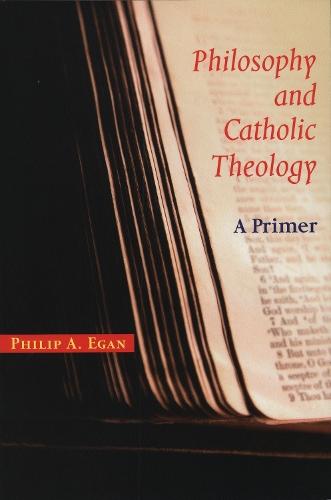Overview
This short book offers a survey of recent philosophy and how its different patterns of thought have influenced Catholic theologians. Rooted in the questions raised by Vatican I and the directions pointed by Vatican II, Philosophy and Catholic Theology shows how theology has developed over the past two centuries and how it builds on the foundations philosophy has laid since the Middle Ages and the crises of the Reformation and the Enlightenment. The issue of the relationship between faith and reason, so acutely raised in those periods, cannot be addressed without some understanding of the sciences that examine those two fields: reason is the province of philosophy, and faith is the realm of theology. Once we have a grasp of philosophy and its questions, we are in a better position to understand theology. When we have a clear picture of both, we can see how theology has built on and been influenced by philosophy. And at that point we can begin to see how reason informs faith and how the two work together to yield knowledge of life's most profound realities. Philip A. Egan is a priest of the Diocese of Shrewsbury, England. He completed his doctoral studies at the University of Birmingham and specializes in the thought of John Henry Cardinal Newman and Bernard Lonergan, SJ. Until recently, he was the dean of studies and professor of foundational theology at St. Mary's College, Oscott.
Full Product Details
Author: Philip A. Egan
Publisher: Liturgical Press
Imprint: Liturgical Press
Dimensions:
Width: 15.20cm
, Height: 1.50cm
, Length: 22.90cm
Weight: 0.255kg
ISBN: 9780814656617
ISBN 10: 0814656617
Pages: 192
Publication Date: 01 May 2009
Audience:
General/trade
,
College/higher education
,
General
,
Tertiary & Higher Education
Format: Paperback
Publisher's Status: Active
Availability: Awaiting stock

The supplier is currently out of stock of this item. It will be ordered for you and placed on backorder. Once it does come back in stock, we will ship it out for you.
Reviews
This book would be a very helpful overview and orientation for theology majors and beginning graduate students in theology. I think it might also be useful for non-Catholic philosophers teaching in Catholic universities.Ann S.F. Swaner, Barry University The book will help philosophy undergraduates and seminarians navigate some of the current developments and trends in Catholic theology. In addition the work may be of interest to students of theology and to general readers who are sensitive to or curious about the influence of philosophy on theology.SirReadaLot.org The range of Father Egan's learning cannot fail to impress. Seminarians and other students will find here a tremendously useful resource: wide ranging, written with a great clarity, user-friendly, it surveys, orders and makes digestible vast ranges of philosophical and theological movements.Karen Kilby, Associate Professor of Systematic Theology, University of Nottingham Karl Rahner once stated that philosophy is the hallmark of Catholic theology. Egan's pellucid volume is the best volume to date on the reciprocal relationship between philosophy and theology, as well as reason and faith in the Catholic tradition. Egan's extraordinary synthesis combines historical astuteness with philosophical-theological acumen to offer a profound grasp of the crosscurrents involving this topic. I especially appreciated the Lonergan flavor of the book.Harvey D. Egan, SJ, Professor of Systematic and Mystical Theology, Boston College, Chestnut Hill, Massachusetts This excellent book succinctly presents Catholic theology, both past and present. In the light of a masterly description of various philosophies, it shows how any worthwhile theology must be philosophically informed. The book emerges from years of teaching, and will be accessible to lecturers and students everywhere.Gerald O'Collins, SJ, Professor Emeritus, Gregorian University (Rome), Research Professor, St. Mary's University College, Twickenham (UK)
This excellent book succinctly presents Catholic theology, both past and present. In the light of a masterly description of various philosophies, it shows how any worthwhile theology must be philosophically informed. The book emerges from years of teaching, and will be accessible to lecturers and students everywhere.Gerald O'Collins, SJ, Professor Emeritus, Gregorian University (Rome), Research Professor, St. Mary's University College, Twickenham (UK)
Author Information
Philip A. Egan is a priest of the Diocese of Shrewsbury, England. He completed his doctoral studies at the University of Birmingham and specializes in the thought of John Henry Cardinal Newman and Bernard Lonergan, SJ. Until recently, he was the dean of studies and professor of foundational theology at St. Mary's College, Oscott.



